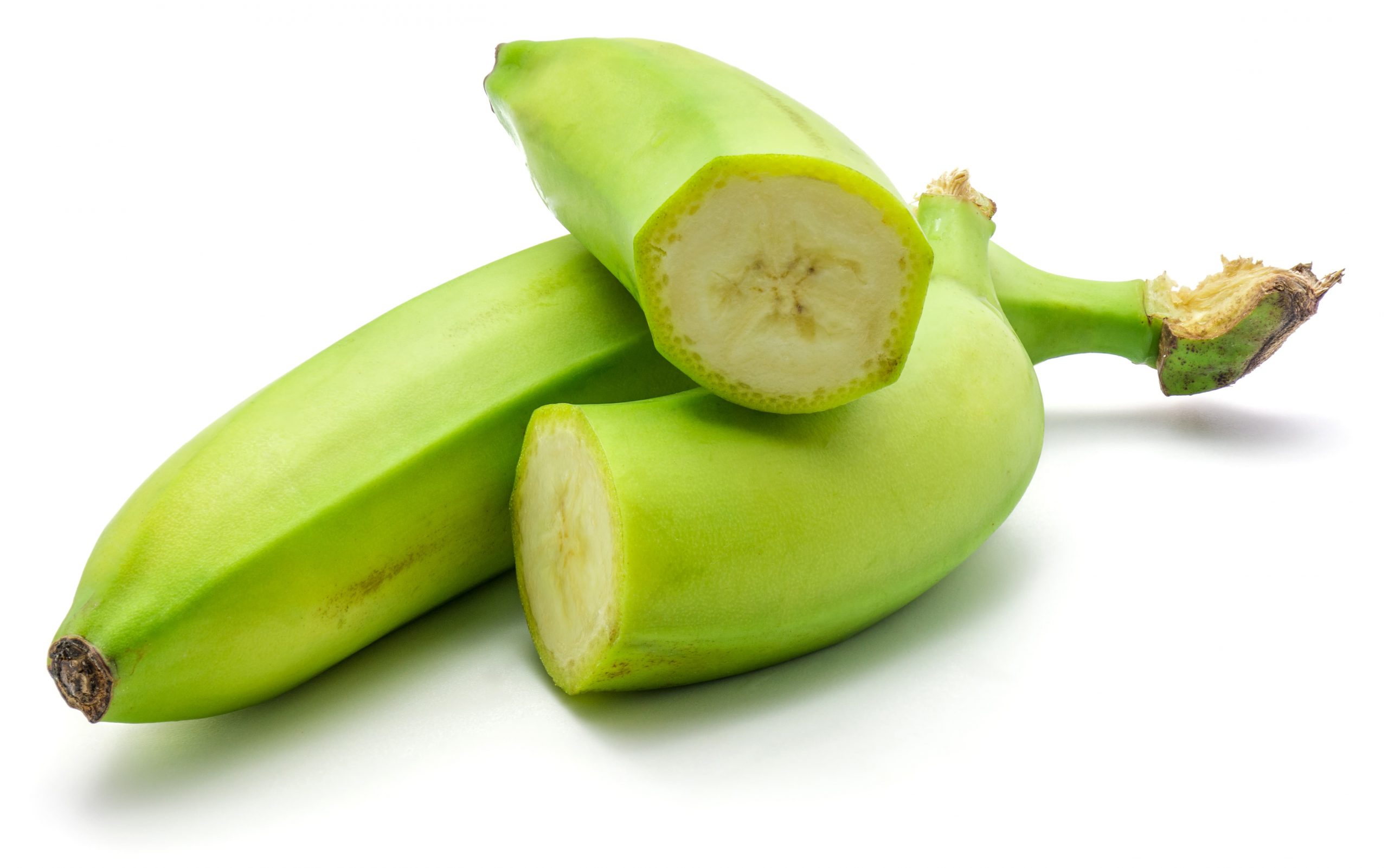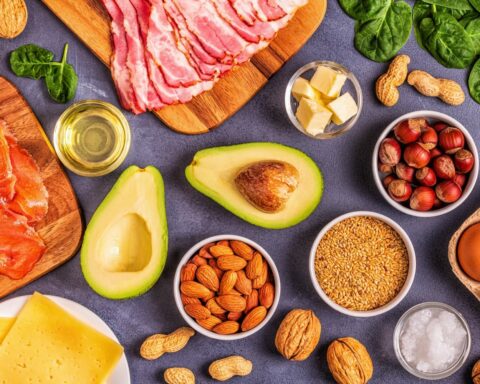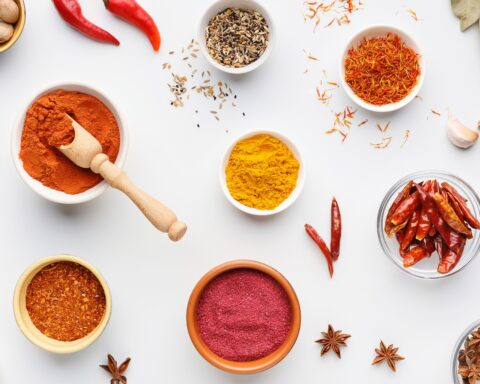Plantains are a staple food in Africa and form part of most meals in Latin America. They have many health benefits, including a good source of fiber and antioxidants, blood sugar and cholesterol levels control, and promoting heart health.
Plantains are the equivalent of sweet bananas, also called dessert bananas. Unlike sweet bananas, plantains are eaten cooked. They can be cooked at different stages of ripening when they are green, yellow, or black. They are a starchier and less sweet version of bananas that can be served fried, cooked, or boiled. Although they are high in carbs and are fairly loaded with fibers (3 g per cup, they are poor sources of protein and fat. Nonetheless, they have many health benefits, considering that they have many antioxidants and fibers. They also make good sources of vitamins A, B6, and C, as well as magnesium and potassium minerals. Here are the health benefits of plantains you need to know about.
i. Plantains boast a rich nutritional profile
The nutritional profile of any food or dietary component is crucial in determining its value on health and overall bearing on general well-being. Plantains are high in carbs and fairly packed with fibers but come with low fat and protein counts. For instance, a cup of cooked plantains basically has 58 g of carbs, 3 g of fiber, 2 g of protein, 0.22 g of fat. They also pack modest amounts of vitamins and minerals, making them an ideal mineral and vitamin source. The same cup packs 663 mg of potassium, 25% of RDI vitamin C, 17% of RDI vitamin B6, and 7% of RDI of vitamin A, and 14% RDI magnesium. As such, taking a cup of cooked plantains helps you meet most of the body’s nutritional requirements for the day.
Carbs are ideal for energy-giving, but too many of them are linked to obesity and visceral fat accumulation. However, plantains also pack fibers alongside the carbs; hence the latter is slowly digested and absorbed, lowering the risks of obesity and diabetes type 2. Nonetheless, keeping portion sizes low is the ideal way to go. Vitamin C herein found acts as an antioxidant, boosting the body’s total antioxidant count. However, you need to serve plantains alongside protein and fat-rich foods to compensate for these nutrients since plantains do not pack many of them.
ii. They support heart health
Heart diseases are at the top of the list of foods that claim the lives of many worldwide. Eating cooked plantains supports heart health in several ways. First, plantains are rich in fiber (3 g per cup), which play many roles in reducing risk factors for heart disease. First, fibers mix with cholesterols in foods, reducing the amount that goes to the blood. Besides, fibers have been shown to prevent the oxidation of LDL (bad) cholesterols that are more damaging to the heart cells. Third, the fibers in plantains lower the risk of type 2 diabetes, a condition that increases the risk of heart disease. Fourth, vitamin C acts as an antioxidant, fighting inflammations and free radical accumulation, both of which increase a person’s risk for heart disease. Last but not least, potassium minerals in plantains support vasodilation and vasoconstriction of arteries by making them flexible. This reduced blood pressure which is a risk factor for heart disease.
iii. Plantains are filling
Eating filling foods is a good way to stay healthy. Filling foods either promote the secretion of filling hormones like peptides or cholecystokinin, or they make you full for longer. Such are plantains; they don’t necessarily trigger the secretion of filling hormones, but they are filling themselves. When you eat them, you don’t feel inclined to snack out from time to time. On the contrary, eating less-filling foods such as refined sugary drinks and processed foods is unhealthy. Because most of them are virtually zero-calorie, you feel hungry after eating them. The starvation makes you want more and more foods, and you are more likely to pick on unhealthy items. This is linked not only to obesity, but heart disease, cancers, and type 2 diabetes.
iv. They make good sources of fibers
Fibers, both insoluble and insoluble, are an important part of the diet. Soluble fibers mix with food to form a gel-like substance that moves slowly along the alimentary canal, allowing more action time. This reduces the amount of sugar the bloodstream absorbs, preventing unnecessary sugar and insulin spikes in the blood. The slow movement of food also eases constipation since foods are well-digested. Contrarily, insoluble fibers feed the gut microbiome, promoting gut health which is directly imperative to overall health. The insoluble fibers also add bulk to food, further boosting bowel health. Some studies also comment that fibers increase the body’s ability to fight colds and seasonal infections. Additionally, fibers help scale down blood sugar levels, improving heart health.
v. Eating plantains can help support your weight loss quest
The quest for weight loss is more popularized today since people want to get the ideal shape for the beauty industry while others pursue it to manage certain health conditions. Still, losing weight, particularly fat mass, is a safe course of action since the accumulation of fats is linked to higher risks of heart disease, type 2 diabetes, and cancers. If you are pursuing weight loss for any reason, including plantains would definitely aid with this quest. Although plantains are rich in carbs, they equally have fibers that slow down the absorption of the carbs, warding off any possible adverse effects.
vi. Eat plantains to boost your immunity
Plantains are versatile and can be eaten alone when cooked, fried, or boiled. Still, you can serve them alongside other dishes since they blend well with most meals. Eating them, especially when boiled, helps you explore the antioxidant vitamin C known to boost immunity. As such, you will be better placed to fight infections and colds. What’s more, bananas have fibers, which also boost gut health and overall well-being.
Conclusion
Plantains are the starchier and less sweet version of bananas that can be eaten cooked, fried, or boiled. They are nutritious, fibrous, and make a good mineral and vitamin source. Their antioxidant content makes them good for heart health, while the fiber in them leads to better blood sugar and cholesterol control.
- Monisha Bhanote MD, FCAP, ABOIM, CCMS, YMTS - April 19, 2024
- Salmon Nutrition and Health Benefits - April 19, 2024
- THE THRILLING STORY OF TALIS-US.CO AND ITS FOUNDERS - July 29, 2023









